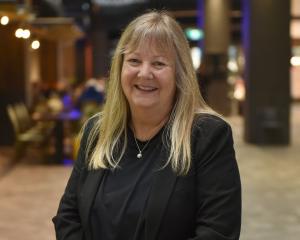The highest earning households in New Zealand live in the Prime Minister's electorate of Epsom, according to Census figures that commentators say will help experts better understand voter behaviour.
Mr Key lives in the affluent Auckland suburb of Parnell, part of the Epsom electorate, where the median household income is $130,400.
The lowest-earning electorate is Northland, where the median household income is just $53,400, according to figures released this week by Statistics New Zealand.
The New Zealanders with the highest personal income live further south in Peter Dunne's electorate of Ohariu, with a median income of $42,400.
In Dunedin North, the number of student residents contributes to the lowest median personal income of just $19,000, said 2013 Census general manager Gareth Meech.
The average house price in Epsom is $1.3 million, ten times the average house price in Kaitaia of $138,800.
Ands spending habits were very different too.
Brian Archibald of Archibald Motors in Kaitaia said Northlanders have adjusted to life on a low income.
"A lot of our vehicles we sell are in the $8,000-12,000 bracket where people can afford to pay it back at $75 a week to $125 a week. And we sell a lot on no deposit.
"We know their budgets. We fit the car to the budget of the person and their use."
Mr Archibald said new cars costing more than $20,000 made up between 15 and 20 percent of their sales.
Murray Selby of Honda Cars in Newmarket said the average price of new cars they have sold is around $35,000, wile most used cars were $20,00-$25,000.
Many buyers paid in cash, and very few took out finance, but Mr Selby said it could be hard to tell, as some paying by bank cheque could have taken out a loan from their bank.
Political commentator Bryce Edwards said the figures, which had not been released by Statistics NZ in this manner before, will be "incredibly useful" for understanding voter behaviour.
Dr Edwards said the figures showed "undoubtedly a correlation" between higher income electorates voting for more conservative parties, with lower incomes being more left-leaning.
"If you come across a poor person on the street, it's a good bet they are going to be a Labour voter, and that if you come across a businessman on the street, he's a National voter," he said.
However, those traditional voter patterns were changing, Dr Edwards said, as both of New Zealand's main parties become more centric on the political spectrum.
The figures also show breakdown in the ethnicites of electorates.
Epsom's population of 61,878 comprises of 62 per cent Europeans, four per cent Maori, and 28 per cent Asian.
In Northland, its 83,568 population is made up by 65 per cent European, 33 per cent Maori, and two per cent Asian.
Mike Sabin, National MP for Northland, said his electorate's rural community and socio-economic demography put it "worlds apart from Epsom".
"Comparing household incomes in itself is not necessarily indicative of one particular factor or another," he said.
Mr Sabin cited the region's booming local economy and focus on business growth as helping to lift incomes.
But, he added: "The rural economy is not one that typically see high paying jobs so while wages can and should lift, I don't ever see a like-for like with places like Epsom."
Wellington Central was the most highly educated electorate in the country, with 47 per cent of people in that electorate having a bachelor's degree or equivalent or higher, Mr Meech said.
In Mangere, the figure was 9.5 per cent – the lowest in the country.
The figures showed the median age of people living in Coromandel and Otaki electorates of 47.9 years was 20 years older than that of people in Mangere at 27.9 years, Mr Meech said.












